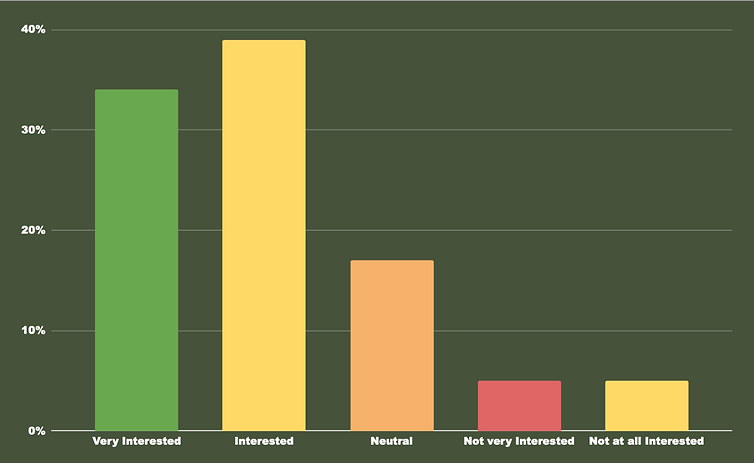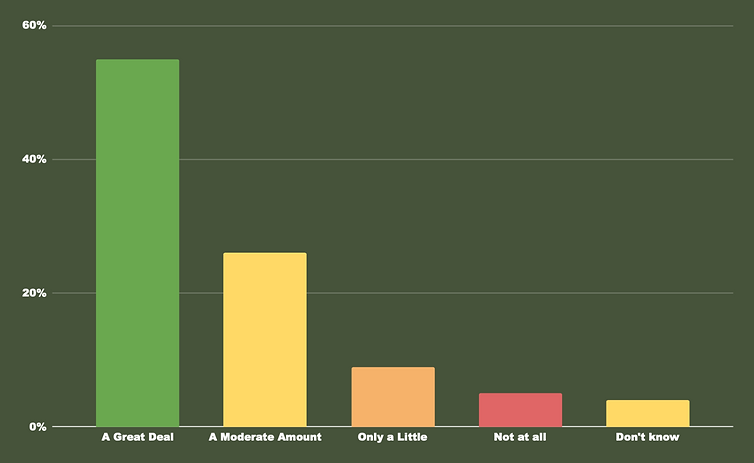VPCC Survey
The survey used in this study was created using the data collection software from ArcGIS Survey123, which is compatible with the Samsung Tab A9+ tablets. The ArcGIS app allows for the electronic survey to be viewed and completed on the Samsung Tab A9+ tablets. The survey team administered the survey on 12 tablets and gathered approximately 400 survey responses in each location during the permitted survey timeframe/period. All surveys were saved, synced, and uploaded to the password-protected ArcGIS platform, where the results were generated and viewable by the survey team. Approximately 5,000 surveys were administered over the course of 8 months by the Northern Michigan University Climate Change Survey Team. The team used the following script to recruit willing and anonymous respondents:
“Hello, I am a student from Northern Michigan University working with the National Park Service and the U.S Fish and Wildlife Service, conducting visitor surveys at this park/refuge. This survey is about visitors’ perceptions of climate change at this Park and takes about 5-7 minutes to complete. Your participation is completely voluntary and anonymous. You can stop taking the survey at any time. Would you be willing to help the National Park Service better understand visitors’ opinions by taking this survey?”
Highlights
2025: How worried are you about climate change? Park and Refuge (n=10,158)

49%
31%
13%
7%
The data indicates that the majority of respondents express a notable degree of concern about climate change, with the largest group reporting a high level of worry. A substantial portion also falls into the moderately concerned category, suggesting widespread recognition of climate change as a significant issue, even if the perceived immediacy or personal impact varies.
2025: How interested are you in learning about scientific research on climate change in this park/refuge? Park and Refuge (n=9,720)

34%
39%
17%
5%
5%
The data indicates that the majority of respondents express a notable degree of interest in learning about scientific research on climate change in the parks. A notable portion also falls into the moderately interested category, suggesting opportunities for expanding education and climate communication.
2025: How much do you think climate change will harm this park/refuge? Park and Refuge (n=7,051)

55%
26%
9%
5%
4%
The data indicates that the majority of respondents express a notable degree of concern about climate change in the NPS & USFWS system, with over half of visitors reporting a high level of worry. A substantial portion also falls into the moderately concerned category, suggesting widespread worry about the impacts of climate change on public lands.
2025: Have you canceled a trip to a park/refuge due to extreme weather conditions? Park and Refuge (n=10,105)

33% NO
YES 67%
The data indicates that the large majority of respondents have experienced trip cancellations due to extreme weather conditions, which suggests that climate-related experiences are impacting visitor behavior.
The 2025 visitor survey reveals a high level of concern among respondents regarding climate change and its effects on public lands managed by the National Park Service (NPS) and U.S. Fish and Wildlife Service (USFWS). A majority of participants reported being "very worried" about climate change, with a substantial proportion also expressing moderate concern. This pattern suggests that climate change is broadly perceived as a serious threat to the natural and cultural resources protected within federal public lands. Respondents also demonstrated a strong interest in learning more about scientific research on climate change in parks and refuges. The majority expressed a high level of interest, while many others showed moderate interest, pointing to significant opportunities for expanding climate-
related education and interpretation programs. These findings highlight the value of incorporating climate science into visitor engagement strategies, using accessible, site-specific storytelling and interactive tools to translate research into meaningful public understanding. The survey indicates that climate change is already influencing visitor behavior. A large majority of respondents reported having experienced trip cancellations due to extreme weather events. This underscores the real-time impact of climate-related disruptions on recreational patterns, trip planning, and visitor access. It also reflects growing public awareness of how climate variability affects both the integrity of protected areas and the visitor experience.